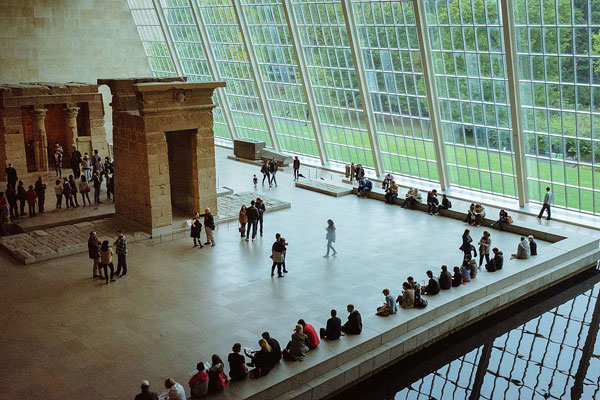
May 15, 2019; New York Times
The Metropolitan Museum of Art in New York City said this Wednesday that “it would stop accepting gifts from members of the Sackler family linked to the maker of OxyContin, severing ties between one of the world’s most prestigious museums and one of its most prolific philanthropic dynasties,” reports Elizabeth Harris in the New York Times.
OxyContin is seen as helping unleash an opioid overdose epidemic that has cost over 400,000 Americans their lives since 1999. In 2017 (the most recent year for which data are available), fatalities from opioid overdoses totaled 47,600.
The Met’s decision was hardly surprising. Two months ago, the National Portrait Gallery in London was the first museum to say it would refuse Sackler donations. Then the Tate Modern quickly followed suit, leading NPQ’s Erin Rubin to ask if a “tipping point” had been hit. Shortly afterward, New York City’s Guggenheim also indicated it would no longer accept Sackler money.
The Met took a little longer, perhaps because, as Harris points out, “The Met’s relationship with the Sacklers goes back decades, and one of its biggest attractions, the Temple of Dendur, sits in the glass-enclosed Sackler Wing.”
The name of the Sackler Wing will not change—at least not yet. Daniel Weiss, president of the Met, told Harris that the museum would refrain from taking such an action until litigation against the Sacklers—there are currently an estimated 600 cases pending—had been resolved. But Weiss did acknowledge the seriousness with which the Met views the matter.
Sign up for our free newsletters
Subscribe to NPQ's newsletters to have our top stories delivered directly to your inbox.
By signing up, you agree to our privacy policy and terms of use, and to receive messages from NPQ and our partners.
“We would only not accept gifts from people if it in some way challenges or is counter to the core mission of the institution, in exceptional cases,” Weiss told Harris. Weiss added, “The OxyContin crisis in this country is a legitimate and full-blown crisis.”
With respect to the Sacklers, Weiss said that, “The museum takes a position of gratitude and respect to those who support us, but on occasion, we feel it’s necessary to step away from gifts that are not in the public interest, or in our institution’s interest. That is what we’re doing here.”
Other institutions, including New York City’s Natural History Museum and Columbia University, have now also said they will not accept Sackler donations.
These decisions, notes Harris, reflect “growing outrage” over the role eight members of the Sackler Family are alleged to have played in fueling opioid addiction as owners and board members of Purdue Pharma, “as well as an energized activist movement that is starting to force museums to reckon with where some of their money comes from.”
An activist group started by photographer Nan Goldin called Prescription Addiction Intervention Now, or PAIN, praised “the Met for making the ethical, moral decision to refuse future funding from the Sacklers. Fourteen months after staging our first protest there, we’re gratified to know that our voices have been heard.” At the same time, a representative of the group, L.A. Kaufmann, also said to the Guardian, “It’s only a matter of time before museums will come to their senses and take down the Sackler name as well.”
The Met’s action is expected to be highly influential. “An organization of the Met’s reputational heft sets standards in the field,” Maxwell L. Anderson, an historian and arts administrator, told Harris.—Steve Dubb












